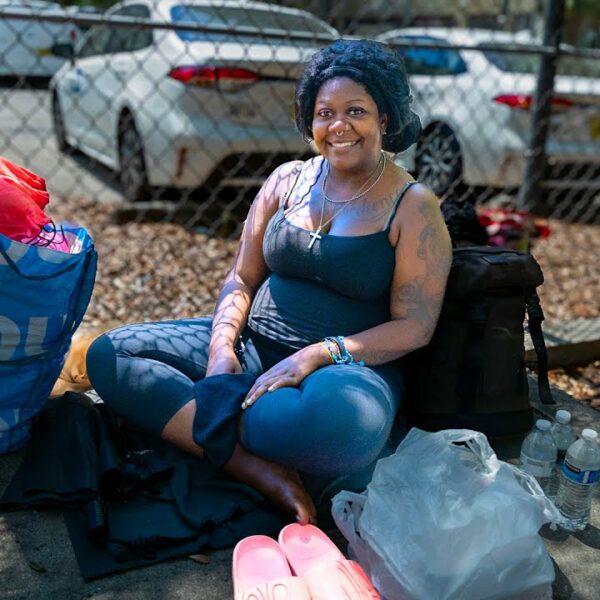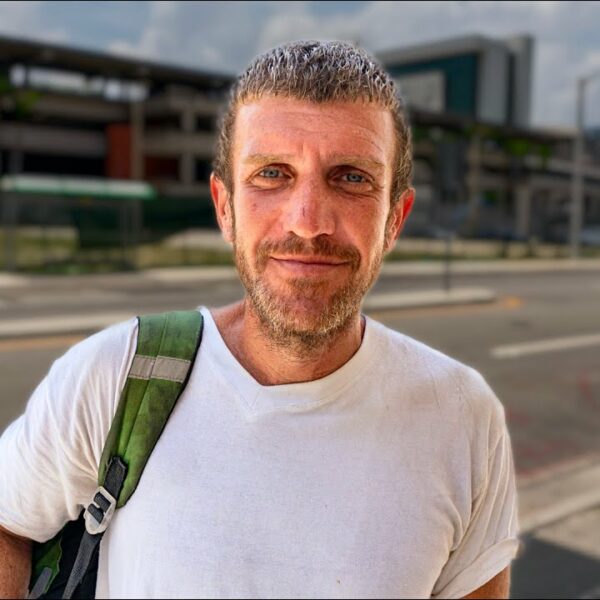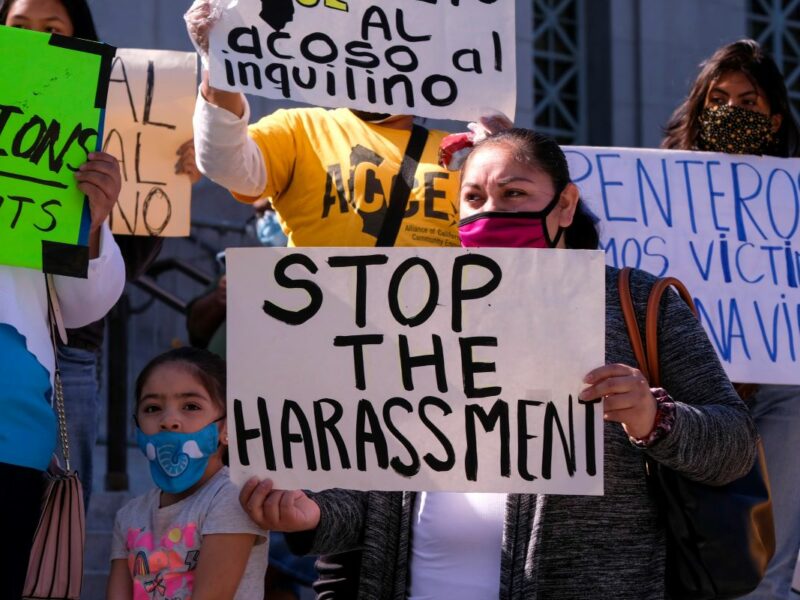April was a busy month for Invisible People. Homelessness is increasing, and no viable solutions are happening to stop it.
The push for criminalization is coming from various quarters, and politicians are increasingly bent on creating internment camps rather than housing to remove homeless people from the public eye. The economy is horrific, and now, affording a decent used car – the very thing they need for transportation to work or even for shelter – is being taken away from poor people.
Invisible People has tried to report on some of the most pressing issues, not the least of which is to get word to the public that they are being lied to about homeless people. We are not all drug addicts and alcoholics who supposedly choose to live on the streets.
Growing Criminalization Trends
Have you watched the video from the New York Times about the criminalization of homelessness? It features Invisible People’s own Mark Horvath and some of the many people he has interviewed over the years who have been priced out of housing and forced to live on the street, in their cars, or in tents.
I have shared it with many people, who told me they were moved and impressed by it. This video is short and to the point but makes a significant impact. It only requires a little time to watch and has a lot of information and a lot of heart. It is the message that needs to be put out to the world right now.
Challenging Misconceptions
Recently, Mark Horvath posted to Twitter that Elon Musk, one of the wealthiest people on Earth, posted a massive lie that was seen by over 31 million people, stating that the leading cause of homelessness is addiction! If there were ever a time in history that this was true, it isn’t now. I have never been drunk once in my life. I have zero history of drugs and alcohol. I’m chronically ill and have too little money. How dare Musk imply I’m an addict!
The number one cause of homelessness is the lack of affordable housing. It is being priced out of housing due to the ever-increasing cost of rent and the fact that there are too few affordable options. All the elderly, who are the fastest-growing demographic of homeless people, are not addicts!
I promise you, few people who are mentally well would sign up to live on the street and deliberately become the most detested thing on the planet in 2024 – a homeless person. No person who is sick, disabled, elderly, or is a parent with their children would ever choose to live on the street as an alternative to a warm home with a bathroom and running water!
Death of Social Media
I recently wrote about the death of social media. It is not my imagination that I see so much less interaction and engagement on my posts and the posts of other people, including people who used to get quite a lot of interaction.
Though some “blue checkmark” people have a reasonable amount of interaction at first sight, many have also noticed a marked decrease versus a few years ago. Today, social media platforms are limiting who you see. You must scroll past many ads and posts from people you do not follow to see a few you do. If you choose to be notified when someone posts, you might end up with constant notifications that become overwhelming, but it’s the only way you’d know somebody posted and that you regularly follow.
Impact of Misinformation
Now think about this: What happens if you severely limit the number of people who see messages from advocates like Invisible People but allow wealthy people (who have a clear agenda to criminalize homelessness) a broad audience? Clearly, the message of misinformation is broadcast far and wide, and our voice is drowned out. Whose message is going to be believed? It’s hard to educate the public when the public cannot hear our voice or see our message.
It is said that homo sapiens thrived because of their ability to cooperate, but they aren’t the only animals that can. In the case of humans, cooperation is usually limited to one’s own group, with charity and compassion extending only so far. So, all of the delusions about being the superior creature are just that – delusions. We are not a big human family sharing this planet. Kindness, compassion, care, and cooperation are limited and conditional.
When influential figures like Musk propagate falsehoods and stoke the fires of hatred, millions rally behind this toxic narrative. Yet, when we attempt to counter it, our efforts are met with minimal support. How do we push back against this tide? Appealing to humanity and compassion often falls short in today’s world.
Meanwhile, a diverse array of individuals—elderly, disabled, and working families—are rapidly priced out of housing and pushed to the streets. Despite this reality, the public clings to outdated stereotypes of homelessness, perpetuating the harmful belief that those struggling with addiction have made a choice not to seek help and, thus, don’t deserve assistance.
Urgent Need for Sustainable Solutions
The undeniable truth is that it costs a lot more for taxpayers to fund shelters and sweeps, which exacerbate homelessness by disrupting lives, eroding trust, and perpetuating cycles of instability. Instead, we should invest in proven solutions like adequate, affordable housing options and specialized housing for disabled and older people. It’s more humane and economically prudent in the long run.
Some people think in monetary terms because they’re hoarding wealth, while others think that way because they’re one paycheck from becoming homeless themselves. In a society where money often takes precedence over everything, including human life, it’s clear that prioritizing wise financial investments should be a top consideration.











